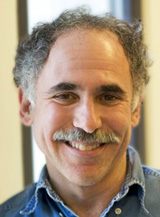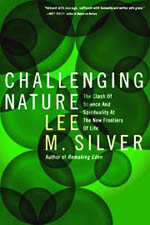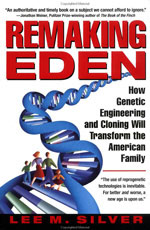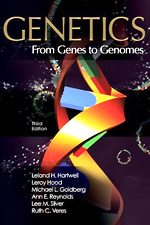|
published by Ecco/Harper Collins, 2006
|
|
Books
Presentations
Publications/Writings
Biography
Princeton Courses
|
Featured Booklist Review (by Bryce
Christensen)
The archetype of mortal
defiance, Prometheus has found a new champion. Outspoken molecular
biologist Silver argues that only scientists willing to join Prometheus
in challenging divine prohibitions will ever deliver on the promise
of new genetic technologies. Although despairing of ever expunging
spiritual beliefs from liberal democracies altogether, Silver hopes
that a truly open and rational public dialogue will expose the folly
of continuing to allow religious fundamentalists to impose needless
restrictions on scientific research. It particularly galls Silver that
such religionists often confuse an ill-informed public by cleverly
wrapping their religious objectives in scientific rhetoric. Surprisingly,
Silver sees the Christian obstructionists of the Religious Right finding
allies among the left-leaning, post-Christian devotees of nature. Both
groups recoil from the prospect of using new science to improve human
genes or to reengineer the plants and animals humans rely on for food.
Both groups, Silver asserts, fail to realize that humans have been
productively intervening in natural reproductive processes for millennia�and
should now use available tools to do so more aggressively, both to
minimize human suffering and to maximize ecological health. The relentlessness
with which Silver disputes the views of his opponents will impress
many readers�and
alienate others. But this book will surely
fuel precisely the kind of debate Silver recognizes as essential in
a democracy sorting out perplexing scientific possibilities.
The New York Times: Science Tuesday Book Review (by Nicholas
Wade)
Biologists Take a Turn at Raising Eyebrows:
Engineers, particularly of the nuclear kind, are used
to seeing the fruits of their knowledge refused by a doubtful or distrusting
public. For biologists, this bitter experience has become common only recently
as they have gained the power to manipulate the genes of crops, animals
and people. Their frustration is much in evidence in a new book by Lee
M. Silver, a molecular biologist at Princeton. In "Challenging Nature: The
Clash of Science and Spirituality at the New Frontiers of Life," he hacks
away at the various mysticisms and superstitions that, in his view, are
impeding many rational exploitations of biotechnology like genetically modified
foods and research on embryonic stem cells. . .
Dr. Silver's book is a
valuable exposition of the rationalist's view of the world, showing how
seriously it differs from many widely held beliefs. He notes, for example,
how the ingrained rule of thumb, natural equals good, unnatural equals bad,
makes people instinctively oppose laboratory forms of genetic manipulation.
He argues eloquently that biotechnology holds the solution to many serious
problems but is being shackled by public misperceptions.
Most scientists, Dr. Silver doubtless included, know very well that they must submit to the political process. But the public should perhaps understand better than it does the frustration of those it first trains to improve the human lot and then bars from using their knowledge.
Given Dr. Silver's boldly stated iconoclasm, it may seem ungracious to chide him for the one instance in which he pulls his punches.
Discussing future human evolution, he notes that mathematical prodigies have fewer children than janitors, the first leg of R. A. Fisher's gloomy inference that because the rich and clever have fewer children than the poor, intelligence must inevitably decrease.
Dr. Silver leaves Fisher's specific conclusion unstated, doubtless because of
the eugenic policies that were based on this argument by a co-founder of population
genetics. But he warns that in certain conditions "positive natural selection
will � for all intents and purposes � come to a halt." He suggests that genetic
engineering � the selection of genes, not people � should be an acceptable
way of side-stepping this anthropogenic jamming of the evolutionary process.
Natural selection may not be as easily evaded as Dr. Silver predicts. Still,
genetic engineering of the human germ line may be desirable and needed for
other reasons. The clash of ideas that Dr. Silver describes, even though only
from his perspective, is the sound of a battle that will continue far into
the future.
Publishers Weekly
Silver, a molecular
biologist at Princeton, examines new dimensions of the contentious
debate between science and religion over cloning and other biotechnologies,
and brings fresh insights to it. Many Western religious people believe biotechnology is an attempt to play
God and that human clones would be created not in God's image but in the image of humankind.
Such arguments rest on the nature of humanity, and Silver points out that the only characteristic
that makes us human is not that we have a soul but that we have human parents. Silver also explores
the debate over genetically modified foods and synthetic crops. He argues that the organic and
natural foods movements make their case on spiritual grounds, imbuing Mother Nature with a spiritual
force equal to the force of the Christian God. Silver points out, however, that Mother Nature
is a violent, not a benevolent, deity, and can cause more disasters than the making of synthetic
foods ever will. Finally, Silver points out that biotechnology presents little problem for Eastern
religions that believe in reincarnation. In the words of one Buddhist scientist, therapeutic
cloning "restarts the cycle of life." Silver's
provocative ideas and his graceful prose open new avenues for discussion
of the challenges that face science and spirituality.
Kirkus Reviews
A molecular biologist
surveys the ethical and philosophical questions raised by biotechnology.
Silver (Biology/Princeton) states that much of the controversy surrounding biotechnology arises
from the Judeo-Christian religious tradition, with its emphasis on God's creation of all life.
In comparison, members of Asian cultures with non-monotheistic religions have few qualms about "playing god," a phrase that recurs frequently in discussions of the subject. It isn't just conservative Christians who believe "there are things man was not meant to know."
Politically liberal believers in the modern Mother Earth or Gaia myths are often strongly opposed to genetically engineered foods. On both sides, anti-biotechnical beliefs arise from the premise that science alone cannot explain life. Silver spends a fair amount of time exploring such cases as conjoined twins and chimeras (the nearly complete absorption of one embryo by another) and human monsters with two heads -- cases that disturbingly challenge the notion of individual souls. He also devotes considerable energy to tracing the origins of the organic-food lifestyle, of the vitamin industry, of homeopathic medicine and other movements that claim to be based in science but retain a hard core of "vitalism," the belief that a profound gulf exists between the living and the non-living. Anti-biotechnology activists such as Jeremy Rifkin cloak their statements in scientific language, but at the core, they also reject the idea that biological phenomena can be explained in materialistic terms. The Christian conservatives opposing stem-cell research and other cutting-edge biotechnology as violations of "natural law" are,
in comparison, much more consistent in their beliefs. In the end, Silver
admits that biotechnology has a significant hurdle to clear, but he believes
that current prejudices against science will in time erode. Probing,
controversial, well-documented and often persuasive.
The San Diego Union-Tribune
Among journalists covering biotech, it has long been known that if you're
in need of a provocative quote from a scientist willing to throw off the cloak of caveat that
graduate schools hand out with Ph.D.s, Lee Silver is your man. A Princeton molecular biologist,
Silver has been one of the few researchers with both the credentials and the gift of phrasing
to articulate what some other scientists thought but wouldn't say . . . Brian
Alexander
Talking Points Memo TPMcafé (by
Michael Levi)
.
. . [Challenging Nature] asks a simple question: How will different spiritual
outlooks affect the future of biotechnology in the United States, Europe,
and Asia? The results are fascinating � and
say a lot about the future of biotech in America and abroad.
Advance Praise
Matt Ridley (author of Genome, The
Red Queen, and other popular science books): Silver exposes the often dangerous consequences of a passion for spiritual
and religious explanations that is innate in the minds of some people. His book is imbued
with courage, suffused with humanity and written with grace.
Peter
Singer (Decamp professor of bioethics at Princeton University, and author of Animal Liberation): Lee Silver has written a provocative and sorely needed book. Agree or
disagree with his conclusions, the rich array of arguments will force you to think afresh
about many cherished preconceptions. In this often-muddled area, that has to be a very good thing
indeed.
Michael Gazzaniga (professor of neuroscience at Dartmouth University, member of President Bush's Council on Bioethics, and author of The Ethical Brain): A spectacular and riveting book that puts those who reason by assertion
of prior traditions on the run. Professor Silver takes no prisoners and yet offers an upbeat
and positive view of the human condition. Many people may not agree with his argument. But no
one can deny he shakes things up and makes you think and rethink the most basic questions about
the nature of human existence. I say Bravo!
Ian Wilmut (director
of Regenerative Medicine at the University of Edinburgh and leader of the scientific team that
cloned Dolly the sheep): Full of fascinating information, Challenging Nature will certainly help you clarify your personal views on biotechnology.
Lord Robert
May (president of the Royal Society of England and past chief
science advisor to the government of Tony Blair): As the frontiers of science advance, reaching toward understanding
of the basic molecular machinery of life, people increasingly worry about which doors
to open and which to leave closed. Some of these worries derive from scientific concerns
about unintended consequences, others derive from religious beliefs, and yet others
from feelings about what is �natural�.
Lee Silver�s book gives a superb and sensitive account of the scientific facts in relation
to these varied concerns. In an ever more complex world, this book is a beacon. Read
it.
|
Hover over or click on books to order from Amazon.com
|



